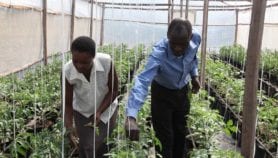By: Noshua Watson
Send to a friend
The details you provide on this page will not be used to send unsolicited email, and will not be sold to a 3rd party. See privacy policy.
In July the UN launched a prototype of the next Global Sustainable Development Report to identify emerging development issues and how science can help. It recommended that the final version of the report, scheduled for 2016, should use crowdsourcing to gather input from a broader group of social and natural scientists, rather than just UN staff and selected experts. [1]
The use of crowdsourcing technology to open up the consultation process might encourage the private sector to engage more deeply with the sustainable development agenda. It signals an important change in the UN’s consultation process, which normally focuses on governments and researchers from academia and non-governmental organisations.
One of the recommendations that emerged from the 2012 UN Conference on Sustainable Development (Rio+20) was to integrate scientific evidence more coherently into policy-making. Actively seeking the opinions of private sector scientists would contribute to that aim because the private sector is considerably skilled at transforming scientific research into policy and products.
Some might argue that if included in the next Global Sustainable Development Report, the commercial nature of private sector research might bias the policy conclusions. But the report aims to synthesize the global debate and lay out the policy implications, so excluding the opinions of private sector scientists would ignore a considerable body of knowledge.
And the principle of opening up to a wide range of partners is not new to the development arena. For example, Medicines for Malaria Venture (MMV) is a public-private partnership that develops new drugs to treat the disease. MMV manages a virtual network of research and development partners and integrates their findings into a drug development process with market research, drug approval applications and delivery of anti-malarials to where they are needed. As such MMV acts as a central repository of both scientific and policy expertise for malaria drug development.
Crowdsourcing input to the Global Sustainable Development Report may seem a symbolic gesture of inclusion at first sight — but it could actually affect the post-2015 agenda. Encouraging input from a network of contributors will attract new voices and create a broader picture of development science. New collaborators will not just add data points to the report, but also offer their valuable opinions on and experience in science policy. This will be especially effective if the UN can engage private sector scientists in shaping the collective contribution of science to development policy.
Noshua Watson is a business and technology researcher who specialises in the role of the private sector in international development. She has worked in media, academia and the private sector, including for Fortune magazine, the Institute for Development Studies (UK), and technology consultancy firm Accenture.
SciDev.Net publishes regular blogs that offer expert insights on science and development issues in the news. Click here to read the latest analysis blogs.
References
[1] United Nations Prototype Global Sustainable Development Report (1 July 2014)














